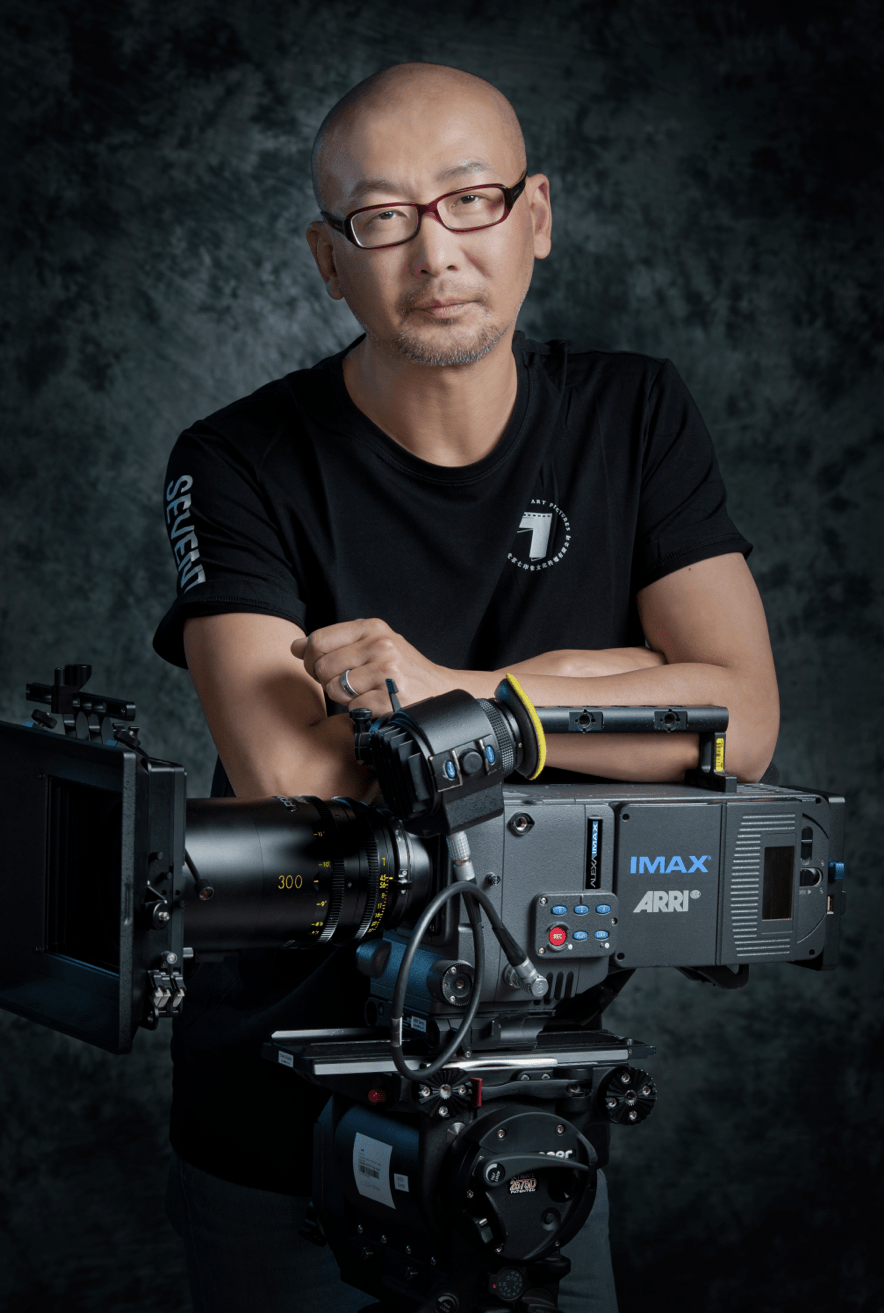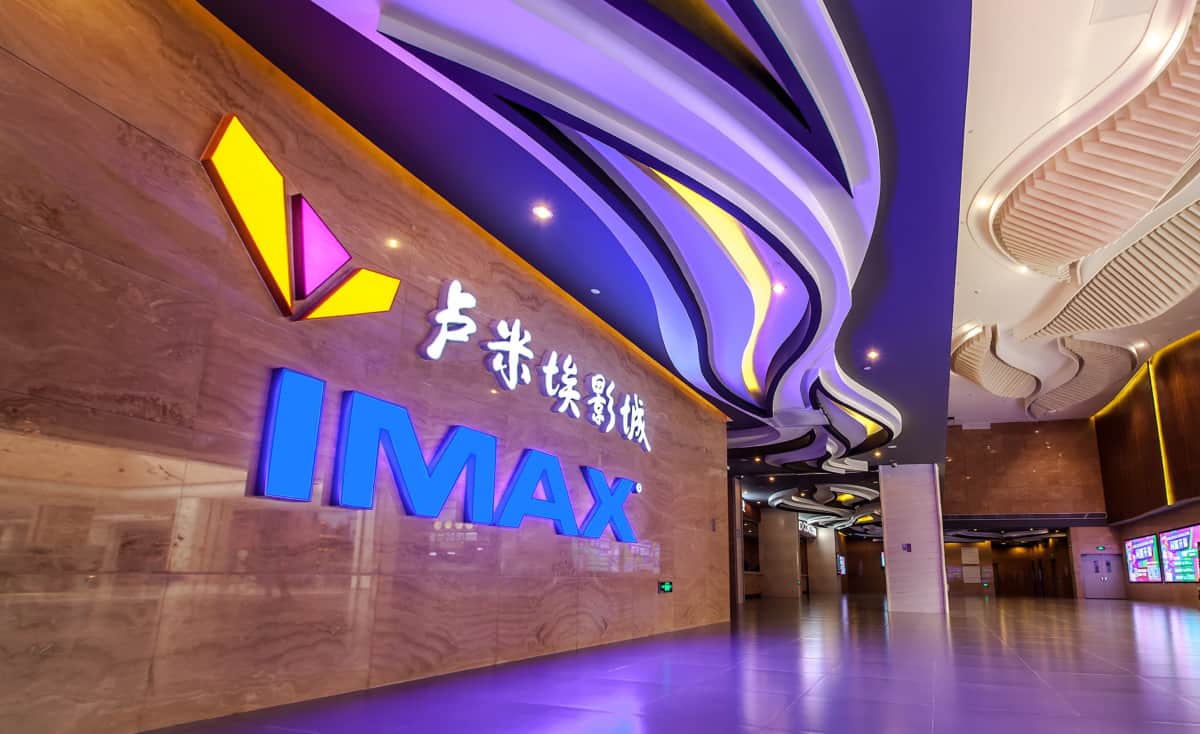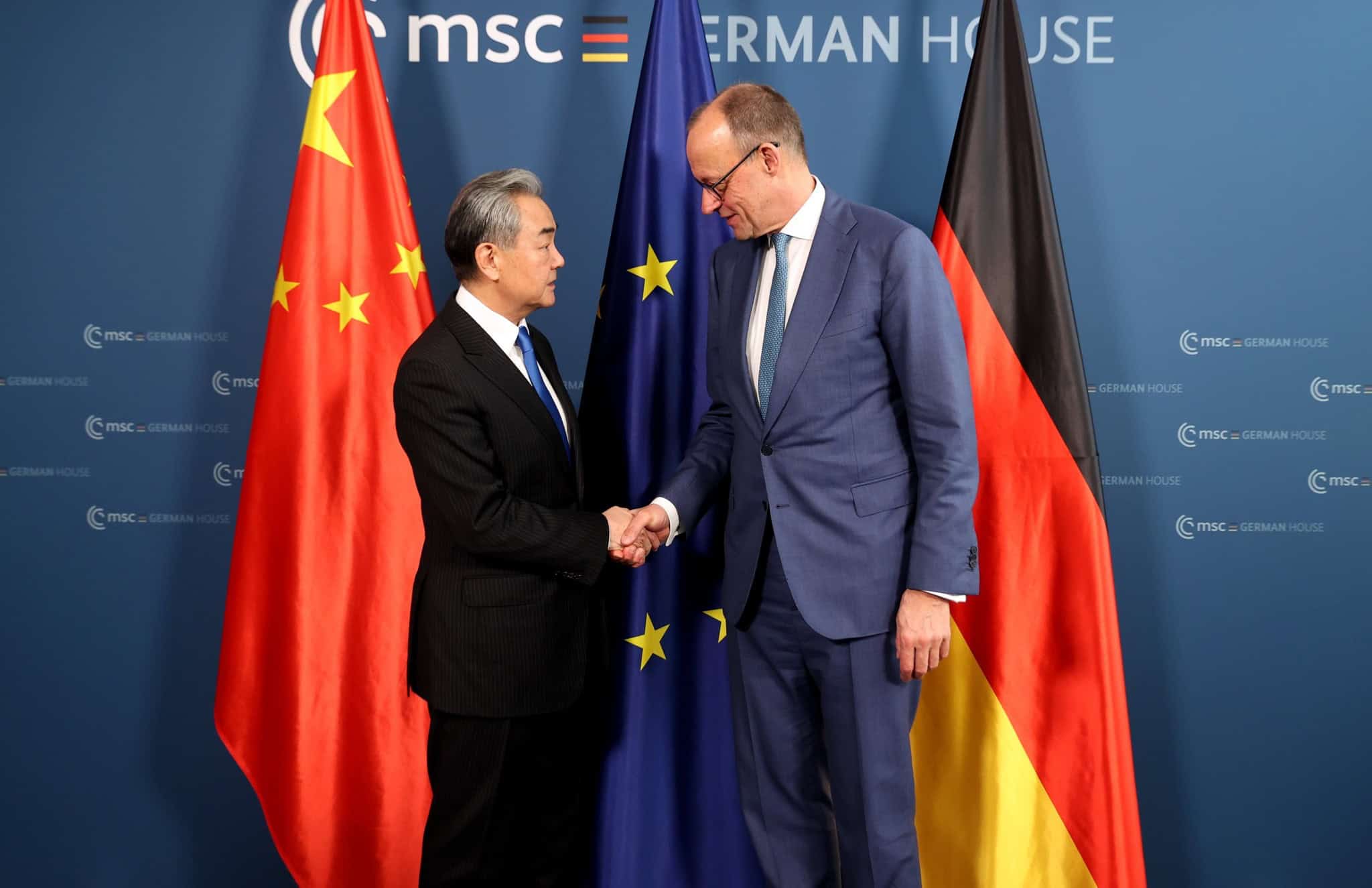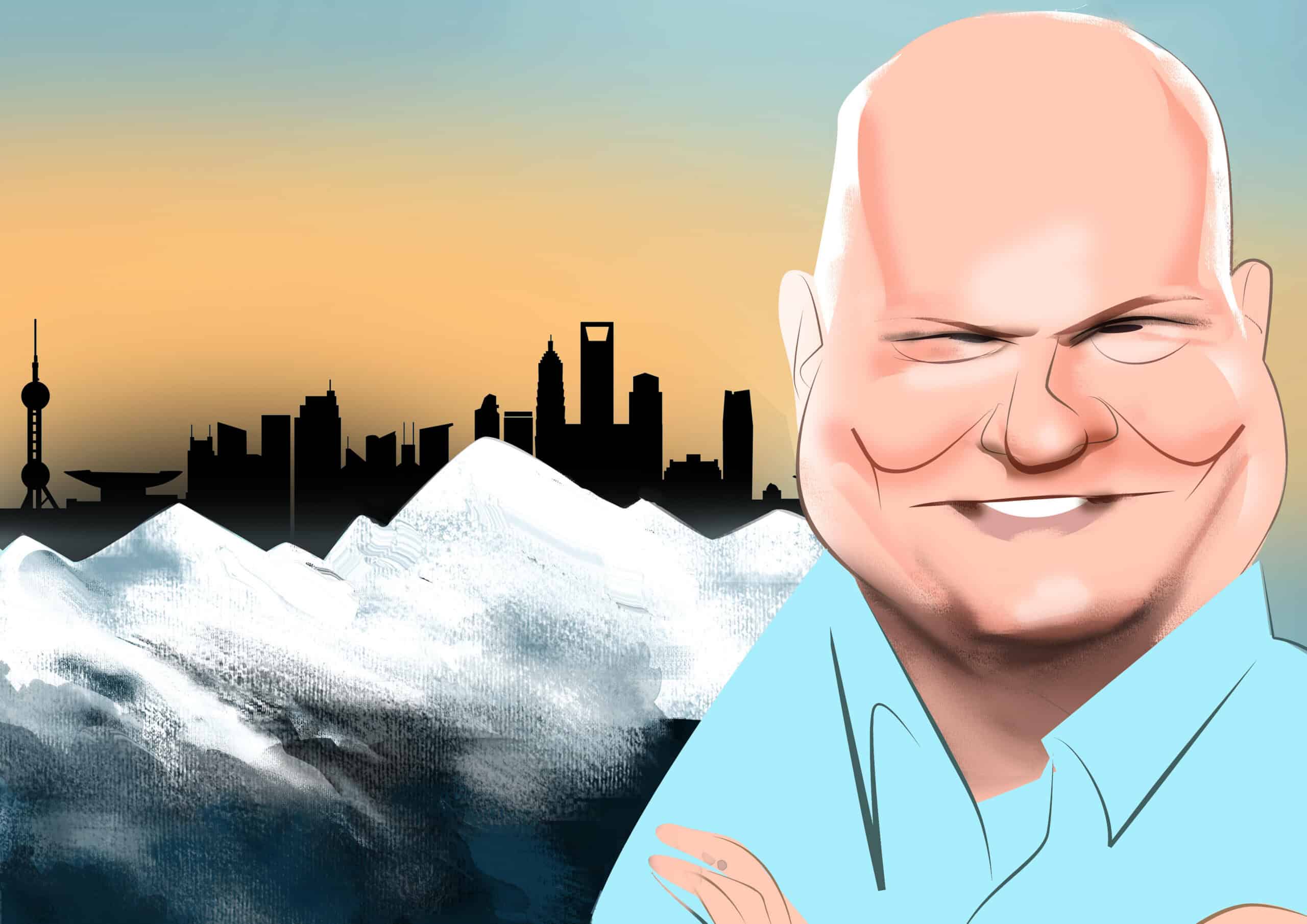Richard L. Gelfond has run the IMAX Corporation since 1996. Gelfond grew up in New York, studied at Stony Brook University on Long Island, earned a law degree at Northwestern University, and later embarked on a career as an investment banker. But in 1994, Gelfond and a business partner, Bradley Wechsler, acquired IMAX, a Canadian company known for creating an immersive theatre experience. Today, the company is listed on the New York Stock Exchange, and its affiliate, IMAX China, is listed in Hong Kong. Gelfond is an engaging chief executive, and in this lightly edited interview, talks about the company’s entrance into China, box office records, and how the company is now coping better inside China than in the United States.

Illustration by Kate Copeland
Q: Your most recent annual report says that in 2019, China surpassed the U.S. as your single largest source of revenue for IMAX. That’s remarkable, considering your company had a tiny presence back in 2010. Can you talk about that?
A: Yes, in terms of number of theaters, it’s actually our largest market by far. The number of theaters in North America is about 400. In China, it’s more than 700. We also have a backlog of about 260 theaters in China. So China is about twice the size of the U.S. market.
And also in terms of revenue?
Yes, slightly more last year… and likely this year too. Because of Covid-19, China only just started to open a couple of months ago in late July. And the U.S. is still virtually in a state of shutdown in many areas. And there are fewer movies being released in the U.S. right now. So this year, China will be bigger than the U.S. again.1FountainVest Partners was a pre-IPO investor in IMAX China and has partnered with the company.
Let’s start with Covid-19. That has been a pretty serious blow to many industries but particularly the film or cinema industry, right? And it happened just after you came off a record year…
In China, we had done forecasts for Chinese New Year, and we expected amazing results. And then, on the eve of Chinese New Year, [because of Covid-19] first they pulled the movies, then they shut down the theaters. This was devastating for us. At the time, we thought this was a China problem. It certainly didn’t seem like a global problem. But in China, we didn’t lay anyone off. We kept everybody working from home because one of the ways we’ve been successful is we’ve treated our China operation like a local company. I use the analogy that a lot of companies enter China, and they try to be like colonialists. But we went in and tried to be natives. We try to think Chinese and act Chinese. That’s why our company is headquartered in Shanghai, it’s run by a Chinese CEO, and almost everyone who works there is Chinese.
| BIO AT A GLANCE | |
|---|---|
| AGE | 65 |
| BIRTHPLACE | Long Island, New York |
| CURRENT POSITION | CEO, IMAX Corporation |
So we were devastated and people began working from home. We thought it was a major crisis. And the rest of the world, of course, was still open then. So we were still doing business, but virtually nothing [was happening] in China. And then, around March 10, you fast forward to the U.S., and it started to happen in North America and other places. Ironically, we were ahead of a lot of companies in the world because, let me use a bad pun: “We’d seen this movie before.” We knew how it was going to play out. So we were very early in cutting people’s travel, limiting discretionary expenses, etc. And then there was an overlap period, where the whole world was shut, both here and China. And that was extremely difficult.
The way we ran our business was not to take on leverage and, in fact, at the time we had no debt. When the rest of the world outside of China shut down, we drew down our [bank] revolver, which is around $300 million. That gave us a very long runway at the time, where we could operate in a zero-revenue environment. Then, fast forwarding, China has a bunch of fits and starts. In April, they were supposed to open up and then at the last minute, they didn’t. And then it was supposed to be a few months later, and they didn’t. Finally, they opened up on July 28. But they opened slowly and cautiously. And in the last month or so, even though there are capacity restrictions, it’s been close to business as usual there. Ironically, the U.S. [only] started to open around September 1, Labor Day weekend. We had a [few things] open before that, but it’s been much less successful. As a result, Hollywood has delayed a lot of releases until next year, or very late this year. So we’re in this ironic position now, where China is really the global engine for our company, doing significantly better than the United States or the rest of the world. And it’s been sort of an inversion, where China’s mostly back to normal, and the United States is the farthest away from normal. What was the anchor is now the speedboat. And what was the speedboat is now the anchor.
So China is getting back to normal, but aren’t many of the movies you showcase in China originating from Hollywood?

Our box office in China is composed of two parts: the Hollywood releases and the local language, or Chinese, releases. Now, in the next six months, there’ll be a lot of local language releases, especially because some of the Hollywood films were delayed from earlier this year. And I’m told that Chinese New Year for 2021 has a good lineup. We also benefit in China from Hollywood movies. And the delay in the Hollywood movies will mean we don’t do well. It won’t come back to full capacity, or full force, until the rest of the world recovers. New York and California are still closed. It’s a combination of the studios’ level of confidence that people will go to the movies and political issues involved with the reopening. Some Democratic governors are very slow because, for political reasons, they think that’s where they should be. And then there are the filmmakers and the studios who want to maximize box office revenue. So they’re going slow. Then, of course, there’s the most important thing I left out, which is the course of the virus. When you level all those things together, it’s very difficult to predict.
Did Covid-19 force you to rethink your business model? Has there been any effort to become more like Netflix, or to go online? Did it force a rethink of the cinema experience?
A little of both. We certainly are confident that when it’s safe, people will go back to the movies. And we can point to China as a place that gives us confidence. A six month shutdown isn’t going to change 100 years of human behavior. It also showed us the urgency of diversifying our revenue streams into other products [that are] in the home. We’d already started that a little. As a matter of fact, in China, we have a joint venture with TCL, where we’re producing televisions for the home. And in the United States, we have something called IMAX Enhanced, which enables high-end TVs and consumer electronics to play IMAX content. We’re using proprietary technology. So we had realized [the value of diversifying] before. But while we were shut down, we used our internal resources disproportionally to try and accelerate some of our initiatives in the home arena.
How do you see the pie splitting in home versus outside cinema experience?
I don’t know how big the pie could be, but it’d be good to capture a big piece. And yet, we haven’t really publicly discussed our long-term technology strategy. It’s interesting because we have image enhancement technology, we have image capture technology, and we have image projection technology. There’s a whole ecosystem. And we have such a valuable brand in that ecosystem that we feel that by using the existing technology, we may be able to pull it together in an interesting way.
So that would give the licensing ability or you’d be selling your technology as well as your in-theater experience?
Well, in the theater, this is the model we sell our technology today. We license it to exhibitors, and they pay us a royalty. So it might be similar with technology in the home. We might license it. And the providers, they pay us a royalty. It would just be a more diversified area. It’s early, but we’ve had some limited success with our IMAX Enhanced program. We’re not only partnered with Sony, but we’ve partnered with Tencent and TCL. Right now it’s small, but we have ambitions in that space.
In China, the new war epic, “The Eight Hundred,” has done really well, post-Covid. Isn’t this the first Asian film made with IMAX cameras?
Yes. Only select productions are able to shoot with our cameras, which produces the highest possible resolution and aspect ratio for films show on our screens. Most films are enhanced to play in IMAX theatres through our proprietary DMR post-production process.

Credit: IMAX
Can you talk a little about how IMAX went from having just a few theaters in China, to having China unseat the U.S. as the company’s largest source of revenue, and also now a Hong Kong-listed affiliate called IMAX China?
So in the late ’90s, as we were looking at opportunities in the world, it occurred to me that China was a very underserved international market and growing rapidly. And the kind of content we had at that time, which was mostly documentary and institutional content, would appeal to the government; and perhaps, they [the government] wouldn’t only allow us in [to China] but encourage us. Also, at that time, they were really focused on education and lifting up the middle class, and a lot of IMAX films were educational or space films — [films that] took people to other places. And, I thought it would be the right thing at the right time for China. I’ll never forget one thing. I’ve been running the company for 26 years, and one of my greatest moments was when I went to the Shanghai Science and Tech Center. I saw these little kids with 3D glasses watching one of our space movies, and reaching out their hands to try and touch the objects. It was amazing. It was just clear that it was a perfect fit with where they were going. That was the original idea. Then there was some good strategic thinking and a little bit of luck.
The good strategic thinking is: we always knew we needed to be part of China, and not be an outsider. So we made a documentary with Shanghai Film Studio.2IMAX has longstanding ties to the Shanghai Film Group and Li Ruigang, the former head of Shanghai Media Group and the co-founder of China Media Capital, a media and entertainment investment firm that has done deals with Alibaba and DreamWorks. We also moved our Asian headquarters from Singapore to Shanghai, and we started hiring Chinese personnel. And maybe most importantly, I made a number of trips, before I finalized the strategy, to meet with Chinese government officials. I even met the Minister of Finance, and I said: “What can we do for you?” I didn’t ask them for anything. I asked how we could help them. That was the strategic part. The lucky part was soon after we started our initiative, China decided that it wanted to focus on entertainment. They wanted to build malls and multiplexes, and focus on entertainment in a really big way. So, as with most things in life, it’s not luck or planning, it’s both. So we were well-positioned when that wave took off. And it was incredible. In our wildest dreams, we didn’t think we could grow as quickly as we did.3Before its Hong Kong listing, IMAX China also sold a large stake to China Media Capital, the Shanghai-based media investment firm run by Li Ruigang. CMC’s investors included government investment firms. CMC also later set up a film fund with IMAX.
| MISCELLANEA | |
|---|---|
| BOOK REC | The Splendid and the Vile by Erik Larson |
| FAVORITE MUSIC | The Rolling Stones |
| FAVORITE FILM | Chariots of Fire |
One of the turning points was “Avatar.” I remember the long lines. It played for three months. We had 14 theaters and did $24 million in box office. I remember the Politburo closed our theater in Beijing, so they could go see it. People were scalping the tickets for $100 apiece. You know, it was sold out for months. Wanda was our first partner, and we had contracts to do eight theaters. And we had four open. But once Avatar happened, it wasn’t that many years later that they asked to do the first hundred. One of the reasons we went public in Hong Kong [See the IMAX China global offering prospectus here] was so we could raise capital to increase the pace of the rollout in China.
Is there any difference in the way you operate the business model in the U.S. versus China?
It’s generally pretty similar. The only difference is the split in the amount of money we make on Hollywood films in China is a little bit less. That’s because under our model, we get paid by the exhibitor and the studio. As you probably know, in China the studios only make 25 percent, rather than 50 percent. Other than that, it’s very similar.
What’s the earnings breakdown between what you make from a Hollywood film that is shown at an IMAX theatre in China versus a local language film?
IMAX still makes more from Hollywood films – in China, we made about $100 million in box office from local language films last year and about $350 million overall. While China’s film industry is booming and has grown by leaps and bounds, the vast majority of blockbuster films are still made by Hollywood.
Do you have any interest in getting into the film production business in China?
We’ve looked at setting up a film fund to invest from time to time. We haven’t finalized that yet. But that’s something we’re thinking about again. We work closely with filmmakers and the studios in China. So while we have close relationships with Disney and Warner Brothers, and Chris Nolan and Tom Cruise, we also have close relationships with Bona Film, and Huayi Brothers, and Zhang Yimou.
What about copycats. I recall many years ago IMAX had a challenger in China that was using a very similar technology, and IMAX challenged the company in the courts. Is that right?
There was a company called China Giant Screen that we accused of stealing our technology. And we settled the litigation. And now they’re a small supplier of projectors and screens in China. I think we settled in 2008.

Credit: Courtesy of Rich Gelfond
So there are really no major competitors in this space in China?
In China, there are a lot of exhibitors that try to create a copycat, which is called a PLF [Premium Large Format]. But the numbers don’t compare. If you’re a success anywhere in the world, you’re going to have somebody try and copy you. Actually, the Chinese are very brand conscious and status conscious, but less so in the home. So they’ll buy Brand X detergent for the home, but people want to go to IMAX theaters. They want the real thing. In the U.S., there are also some PLF, and Dolby has entered that space, but they’re not as successful as IMAX.
By now, I suppose, there’s no question China will have the world’s largest film market, right?
Last year, the U.S. did close to $13 billion [in box office revenue]. China did $10 billion or $11 billion. China was on an inevitable path to be the highest grossing box office in the world. And in fact, China is approaching 70,000 screens [nationwide]. The U.S. has 45,000 screens. So yes, I do think it’s inevitable. And I think it’s equally inevitable that [China] will be the biggest market in the world for IMAX as well.
Is IMAX in any way affected by the strains in U.S.-China relations? It seems so many industries are affected. Also, does it bother you to see what’s been going on between Beijing and Washington?
Well, on a personal level, I’ve spent over 20 years in China building bridges. It bothers me because we have way more in common than we have against each other. And so it pains me. I’d really like to see a lot of these issues resolved. I’m a lifelong optimist, so I hope they will be resolved on a business level. IMAX is a Canadian company, the parent company. And the subsidiary is in Hong Kong. And the subsidiary is really a Chinese company. We own about 70 percent of it. The rest of it is owned by lots of local people. So, whatever differences there are shouldn’t have an impact on our business in China. It hasn’t until now. And, you know, I must say, years ago, one reason we spun off China into a separate company and then brought it public was we knew that you can never know which way the world goes. And we thought it would be better off standing on its own.

David Barboza is the co-founder and a staff writer at The Wire. Previously, he was a longtime business reporter and foreign correspondent at The New York Times. @DavidBarboza2



